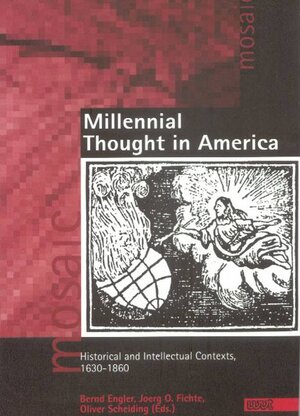
×
![Buchcover ISBN 9783884765173]()
Millennial Thought in America
Historical and Intellectual Contexts, 1630-1860
von Bernd Engler, Joerg O Fichte und Oliver ScheidingThis collection of essays addresses some of the major transformations of millennial thought in America from the 1630s to the aftermath of the „great disappointment“ of the 1840s. The focus will be on the complex interaction between the development of millennialist theories and their specific contexts. On the one hand, the essays included in this volume will reveal how millennialist rhetoric was adapted to the specific needs of a constantly changing historical background. On the other hand, the essays show how these transformations and revisionings of millennial thought contributed to the formation fo the socio-political situation of their time.
While English eschatologists of the 16th and 17th centuries had claimed that America did not play a central role in God's providential design, New England writers argued against the exclusion of America from the history of salvation. Eventually, this gradual process of an 'Americanization' of eschatology led to an employment of millennialist discourse as a means of constructing a national identity. Millennialism underwent a further decisive change at the end of the 17th century when colonial Americans began to redefine the unfolding of the millennium as a communal endeavor in which the individual could play an active part. The image of God as „moral character“ created by Great Awakening theologians responded to the need for a millennialist system which advocated social and political change. In post-revolutionary America a secularized millennialism then envisioned the nation's glorious future and added a civic eschatological dimension to many reformist social projects.
While English eschatologists of the 16th and 17th centuries had claimed that America did not play a central role in God's providential design, New England writers argued against the exclusion of America from the history of salvation. Eventually, this gradual process of an 'Americanization' of eschatology led to an employment of millennialist discourse as a means of constructing a national identity. Millennialism underwent a further decisive change at the end of the 17th century when colonial Americans began to redefine the unfolding of the millennium as a communal endeavor in which the individual could play an active part. The image of God as „moral character“ created by Great Awakening theologians responded to the need for a millennialist system which advocated social and political change. In post-revolutionary America a secularized millennialism then envisioned the nation's glorious future and added a civic eschatological dimension to many reformist social projects.


